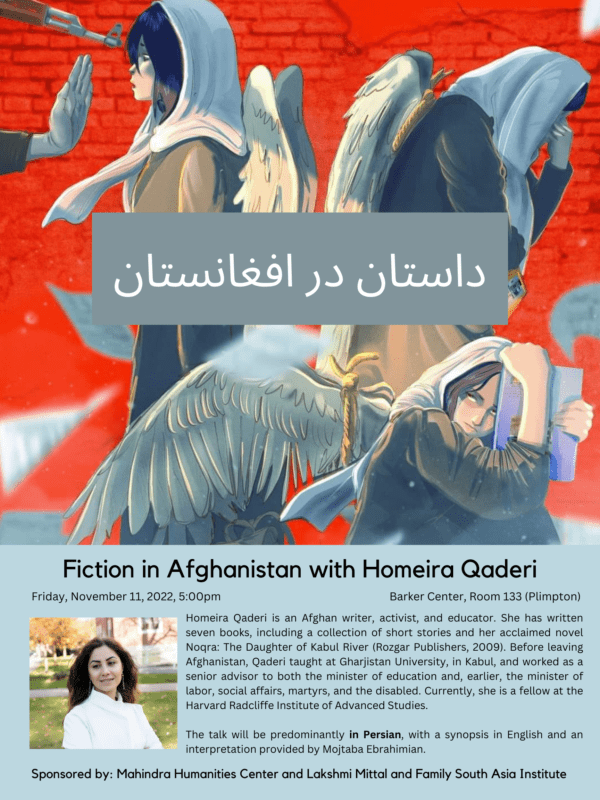Date & Time: Friday, November 11, 2022 | 5 PM EST
Venue: Barker Center, Room 133 (Plimpton Room)
Note: This talk will be predominantly in Persian with synopsis translation.
Homeira Qaderi will talk about her own fiction in the context of literature in Afghanistan. The talk will be predominantly in Persian, with a synopsis in English and interpretation provided by Mojtaba Ebrahimian.
About the Speaker
Homeira Qaderi is an Afghan writer, activist, and educator. She has written seven books, including a collection of short stories and her acclaimed novel Noqra: The Daughter of Kabul River (Rozgar Publishers, 2009). Before leaving Afghanistan, Qaderi taught at Gharjistan University, in Kabul, and worked as a senior advisor to both the minister of education and, earlier, the minister of labor, social affairs, martyrs, and the disabled.
While at Radcliffe, Qaderi is writing a novel, inspired largely by her own experiences, with the working title “Tell Me Everything.” It tells the story of a girl from the Kabul suburbs who is kidnapped during the Soviet-Afghan war and taken to St. Petersburg. After the fall of the Soviet Union, she returns to her hometown, which is under Taliban rule. The novel follows her experiences living under the Taliban rule and through the American invasion and her eventual immigration to Smyrna, Delaware. As she recovers, she reflects on her forced nomadism with nostalgia.
Qaderi received her PhD in Persian literature from Jawaharlal Nehru University, in India. A lifelong human rights activist, Qaderi was awarded the Malalai Medal—Afghanistan’s highest civilian honor—for exceptional bravery by the president Afghanistan. She was a writer in residence at the University of Iowa in 2015. Her first book in English translation, Dancing in the Mosque: An Afghan Mother’s Letter to Her Son (Harper, 2020), was excerpted by the New York Times and chosen by Kirkus Reviews as one of the best nonfiction books of 2020.
Sponsored by the Mahindra Humanities Center and the Lakshmi Mittal and Family South Asia Institute.

